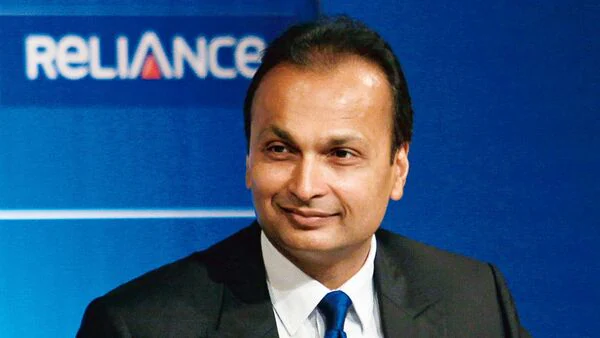The Enforcement Directorate (ED) has summoned Reliance Group Chairman Anil Ambani for questioning on August 5 in connection with a money laundering case related to alleged bank loan fraud involving his group companies, official sources said on Friday.
Ambani, 66, has been asked to appear at the Enforcement Directorate headquarters in Delhi, as the case has been registered there, sources said.
The agency is expected to record his statement under the provisions of the Prevention of Money Laundering Act (PMLA) once he appears for questioning.
In addition, several executives from his group companies have also been summoned in the coming days.
The summons follow extensive searches conducted by the ED last week at 35 locations linked to 50 companies and 25 individuals, including executives from Ambani’s business group. The raids, which began on July 24, continued for three days.
The Enforcement Directorate’s (ED) ongoing investigation into alleged financial irregularities by Anil Ambani’s group companies pertains to the diversion of bank loans worth over ₹17,000 crore, including by Reliance Infrastructure (R Infra), officials said.
According to sources, the ED has found, based on a SEBI report, that R Infra routed funds disguised as inter-corporate deposits (ICDs) through a company named CLE to other Reliance Group entities. It is alleged that R Infra did not disclose CLE as a “related party” to avoid the requirement of shareholder and audit committee approvals.
Reliance Group sources, however, clarified that the matter concerning R Infra had already been disclosed publicly on February 9, and it was not SEBI that independently discovered the alleged ₹10,000 crore fund diversion.
They also stated that R Infra’s actual exposure in the matter was ₹6,500 crore, not ₹10,000 crore as reported. “The ₹10,000 crore figure only sensationalises the matter and is not factually accurate,” said a group source.
The company claimed that it had diligently pursued recovery of the dues and, through mandatory mediation led by a retired Supreme Court judge and proceedings before the Bombay High Court, reached a settlement to recover the entire ₹6,500 crore. The Odisha distribution companies involved in the settlement are operational, and recovery is pending before the courts. “The amount is fully recoverable, contrary to the allegations,” the source added.
The ED is also investigating separate allegations of “illegal” loan diversion of around ₹3,000 crore extended by Yes Bank to Ambani’s group companies between 2017 and 2019. Sources claim that just before the loans were sanctioned, Yes Bank promoters allegedly received funds into their own related concerns—raising suspicion of a “bribe-for-loan” nexus.
The agency is examining charges of gross irregularities in Yes Bank’s loan approval processes, including back-dated credit approval notes, investments made without due diligence, and violations of the bank’s credit policy. It is further alleged that loans were funneled into multiple group companies and shell entities, some with weak financials, shared addresses, or common directors, and often lacking proper documentation.
The ED’s money laundering case is based on at least two FIRs filed by the Central Bureau of Investigation (CBI), as well as reports shared by SEBI, the National Housing Bank, the National Financial Reporting Authority (NFRA), and the Bank of Baroda.
These reports, according to sources, suggest the existence of a “well-planned and deliberate scheme” to divert public funds by misleading banks, shareholders, investors, and financial institutions.
Recently, the Union Government informed Parliament that the State Bank of India has classified Reliance Communications (RCOM) and Anil Ambani as involved in a ‘fraud’ case and is preparing to file a complaint with the CBI. Additionally, a loan fraud of over ₹1,050 crore involving RCOM and Canara Bank is also under ED’s scrutiny, along with allegations of undisclosed foreign bank accounts and assets.
The ED is also probing a possible “quid pro quo” in the investment of ₹2,850 crore by Reliance Mutual Fund in Additional Tier-1 (AT-1) bonds. These are high-risk, high-interest bonds issued by banks to strengthen their capital base. (Agencies)









